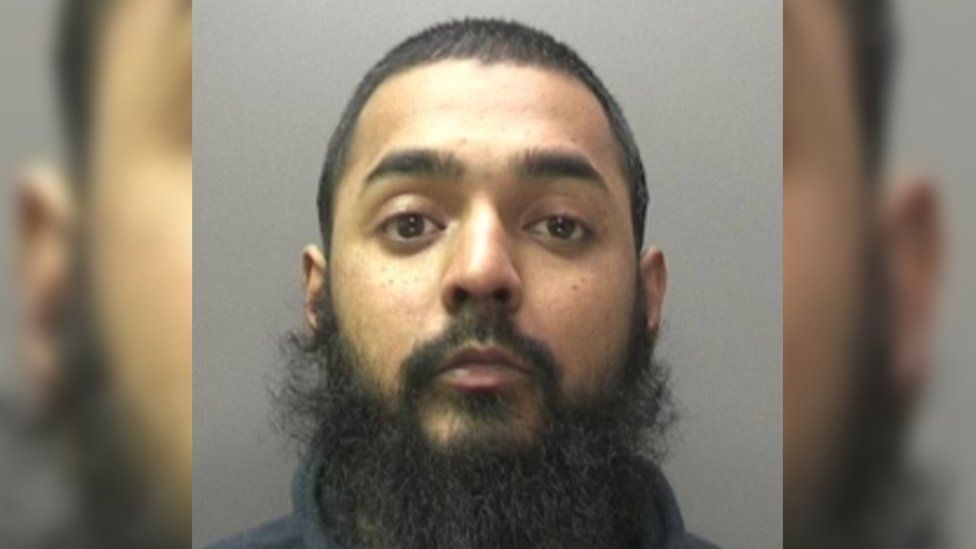Terror offender monitoring rules lawful
- Published

The High Court has upheld the Ministry of Justice's power to impose tighter curbs on the movements of convicted terrorists in the wake of the Fishmongers' Hall attack.
Two judges rejected challenges from an associate of the man who carried out the 2019 attack saying he had been largely treated lawfully, except on one specific issue.
Omar Latif, from Cardiff, said officials had placed greater and illegal restrictions on his life after he had been released, amid fears of copycat attacks.
Latif's former associate, Usman Khan, stabbed Saskia Jones and Jack Merritt at a conference at Fishmongers' Hall in London after he had been earlier released from prison.
Inquests into the circumstances of their deaths are continuing.
In a comprehensive ruling, judges said officials had acted legally when they changed and toughened Latif's licence conditions.
While the court ruled that Latif should have had the opportunity to make representations, officials had recognised and corrected that mistake long before the matter came to court.
Latif was jailed in 2012 for his role in a terror cell operating across England and Wales that had aspirations to set up training camps in Pakistan and carry out bombings in the UK. Usman Khan was one of the people jailed alongside Latif.
Jailed for more than 10 years, Latif's sentence included an additional extended licence, meaning that he would be subject to monitoring and supervision in the community for an extra four years after his sentence ended.
He was first released on licence from prison at the halfway point of his sentence - but he was recalled amid allegations he had tampered with his tag.
In 2018 he was released again, but his supervision and monitoring measures tightened days after Usman Khan's attack.
Latif's new conditions banned him from any meetings or gatherings involving more than 50 people and also prevented him entering parts of London without permission.
That decision came as officials reviewed the licence conditions of terrorism offenders who were then out of jail, amid concerns that there could be other former prisoners like Khan bent on violence.
During his legal challenge, Latif's lawyers said these new measures were unlawfully imposed and breached his human rights. They also argued they were so unclear they could prevent him from going to a supermarket or a mosque for prayers.
Rejecting all parts of the challenge, other than the right to make representations to probation officials, Mr Justice Swift and the Lord Chief Justice Lord Burnett said Latif had not been the victim of "arbitrary" restrictions that amounted to unlawful detention and control of his life.
The conditions did not prevent him from going shopping and his release licence explicitly permitted him to go to a mosque.
"[The Fishmongers' Hall attack] raised generic concerns relevant to all [terrorism] offenders on licence," said Mr Justice Swift.
"Those matters needed to be considered thoroughly and at speed. The fear was that others who had followed the same process of rehabilitation as Khan might equally remain predisposed to violent extremist action.
"The position of the claimant [Latif] may have been thought particularly acute - he had been one of Khan's co-defendants."
Related Topics
- Published3 February 2021